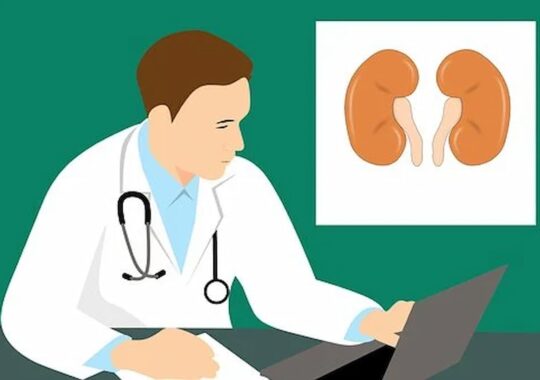The burgeoning field of biotechnology has placed messenger RNA (mRNA) in the spotlight, especially since mRNA-based vaccines have proved incredibly effective against COVID-19. These tiny strands of RNA have a natural role in cells, but biotechnologists see a richer potential, as they’re engineering custom mRNA to combat a myriad of diseases ushering in a new era of personalized medicine. Intricate in their design, mRNA therapies developed by mRNA manufacturing experts are now tailored to address patient-specific conditions, offering hope for more effective and precise treatments for everything from rare genetic disorders to common diseases.
Decoding mRNA: From Biological Mechanism to Therapeutic Tool
mRNA’s journey from a primary biological mechanism to a robust therapeutic tool has been a marvel of modern science. Not much longer than a few hundred nucleotides, mRNA is responsible for carrying the genetic information travels from the nucleus of the cell by DNA to the cytoplasm, where it is transcribed into proteins by ribosomes. It was once thought that RNA could only be used for one-way genetic reading, but with the advent of mRNA therapeutics, scientists can now write in lifesaving messages, programming cells to produce beneficial proteins or, conversely, to silence the production of harmful ones. This understanding of mRNA as a programmable entity is what enables its use in creating targeted treatments and opens a new frontier in medical science.
The Role of mRNA in Personalized Medicine
The promise of personalized medicine lies in developing treatments that acknowledge individual differences at the genetic and molecular levels. Thanks to mRNA’s inherent ability to prompt the body’s own cells to produce therapeutic proteins, it is particularly well-suited for individualized treatment regimens. In contrast to conventional, one-size-fits-all methods, personalized medicine aims to use this characteristic to develop therapies that are precisely tailored to each patient’s distinct genetic composition. This might result in less intrusive, more effective treatments with fewer adverse effects.
Advancements in mRNA Therapy: A Research Overview
Leading-edge research has catapulted mRNA therapies from concepts to clinical reality. Scientists have overcome initial obstacles related to the instability of mRNA and its potential to activate unwanted immune responses. With advanced techniques in synthetic biology, including modifications to the nucleotides and optimization of the delivery vehicle, mRNA therapies are now successfully undergoing clinical trials for various conditions. These trials provide valuable data that feeds back into refining the technology, setting a virtuous cycle of continuous improvement and discovery that expands the potential applications of mRNA therapies.
Treatment Customization: How mRNA Is Tailored to the Individual
Personalization is at the core of mRNA therapy, where treatments are designed to the minutest detail of the patient’s genetic information. Leveraging genomic data, disease-specific markers can be pinpointed. Then, custom mRNA sequences are crafted to either boost the expression of a therapeutic protein or downregulate a malfunctioning gene’s output. The technical prowess and computational tools required to design these personalized molecules mark a significant stride pblgamevent forward in medicine that acknowledges the uniqueness of each patient at the molecular level.
Overcoming Challenges: Delivery Systems and Stability of mRNA Therapies
To ensure the therapeutic mRNAs reach their target without degradation, researchers have designed sophisticated delivery systems. Lipid nanoparticles are the leading technology adopted for this purpose like a microscopic “Trojan Horse,” they smuggle the mRNA past the body’s immune defenses to the interior of the cells. Further ensuring the success of mRNA therapy, scientists tweak the molecule’s structure, replacing specific vulnerable nucleotides with more durable analogs, thereby substantially improving mRNA’s stability. It is critical for the treatment’s immediate effect and the possibility of sustained therapeutic action over time.
The Delivery Systems
Progress in nanotechnology has facilitated the development of vehicles like lipid nanoparticles that shield mRNA from destructive enzymes in the bloodstream. These tiny, fatty envelopes can merge seamlessly with cell membranes to discharge their mRNA cargo directly inside target cells, an essential step for a successful gene-based therapy.
Enhancing mRNA Stability
The chemical fortification of the mRNA molecule itself is vital to the advancement of mRNA therapies. By replacing uridine with pseudouridine, for instance, researchers have found that they can outwit the body’s immune surveillance, preventing premature degradation and unwanted inflammatory reactions while also ensuring that the cell’s protein factories accurately read the encoded therapeutic messages.
Ethical Considerations in Genetic Therapies
While the scientific community celebrates the potential of mRNA therapies, ethical considerations remind us of our responsibility to use this powerful tool judiciously. Genetic therapies involve questions of accessibility, informed consent, and genetic privacy matters that require clear policies and a commitment to safeguarding patient rights. It is vital for the ongoing debate to involve not just experts but society at large to ensure that we employ these innovations for the greater good without exacerbating health disparities or opening the door to genetic discrimination.
Real-World Outcomes: Case Studies and Patient Perspectives
The narrative around custom mRNA therapies is made vibrant when illuminated with real-life examples. Patients receiving these therapies are testimonials of their impact; their experiences enrich our understanding of the practical benefits and challenges of medication regimens tailored to their DNA. From the exhilarating stories of remissions to the practical trials of accessing cutting-edge treatments, the lived experiences of patients form the ultimate measure of success for mRNA therapies.
Future Prospects: Innovations and Developments on the Horizon
As the exploration into mRNA therapy continues, so does the horizon of its potential. The scientific community is continually discovering new applications and improving current practices. It’s a space of rapid innovation where the next breakthrough is always within reach. The imaginable future has mRNA at its core, combating not only genetic disorders but also chronic conditions and perhaps altering the trajectory of diseases like Alzheimer’s or heart disease, by addressing their root causes at the most basic biological level.





